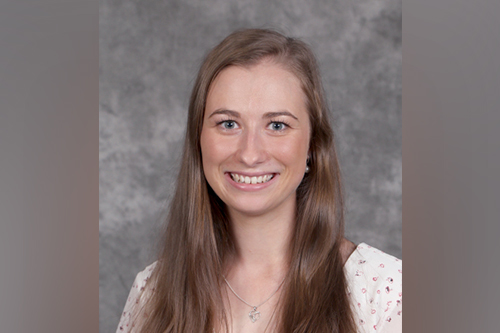
Across Australia, students are grappling with issues of changing climates, changing landscapes and changing patterns of human migration across the globe.
Meanwhile, incremental but significant geopolitical shifts in global power and influence mean that the world that greets today’s students when they leave school could be radically different. One could argue that geography teaching today is therefore more critical than at any other time in modern history.
By instilling a passion for the world in every young person that sits in her classroom, Beaconhills College Senior Geography Teacher, Danielle O'Leary, is giving students a launch pad to stride forward and make a real difference.
Below, The Educator speaks to O’Leary to find out more.
TE: Understanding the world we live in is undoubtedly important, but in your view, what are some of the factors that make the teaching of Geography so important in 2019?
Geography is an amazingly diverse subject that meets a broad range of student interests, whether it be the more traditional world studies or creative and critical thinking, development the of Apps using spatial technology and even policy making and environmental management. In a world where we are constantly being bombarded with information about "what" is happening around us, Geography provides a platform for students to investigate "why" processes or changes are occurring and how they can be involved global citizens. Geography is so much more than memorising country boundaries, capitals and flags, it is a subject that allows students to understand their lives in the broader context of the world they live in, empowering them to make changes or become future leaders.
TE: I understand that you’re employing “innovative 21st century pedagogies to empower every student to engage with geography”. Can you tell us more about this?
Historically, Geography has centred on rote learning of places, people and events. In the present day, while students still need to have a contextual understanding of the world around them, it is becoming increasingly valuable for them to find interconnections between processes or changes and critically about how to manage and adapt for our globalised future. I encourage my students not to just "study" Geography but to be Geographers. To ask the tricky questions that require discussion and debate, explore their wider community and world using spatial technology, create and investigate research questions and hypotheses through fieldwork, write detailed academic reports on their findings, collaborate with various age groups to develop broader awareness and take ownership of their inquisitive nature. In this way, by "doing Geography" my students develop fundamental life skills which is so much richer than just "learning Geography" in a classroom.
TE: When did you realise that your philosophy that “an energetic and passionate teacher creates dynamic and curious students” translated into real results in the classroom? Was there a seminal moment you can recall?
Each student has different needs, interests and learning styles and as teachers it is our daily challenge to not only provide students with core understanding, but also equip them with skills to persist. In Geography, case studies and research provide a platform for us to practice these skills, whether students are using a new form of technology, making creative links between ideas or thinking critically about a situation. I find that students can find personal success when they develop these skills in a range of contexts over time. The meaning of success and 'good results' vary between students and therefore it is hard to pinpoint a specific moment that I felt my philosophy was a 'achieved'. I am always trying to be dynamic and experiment with new learning tools, questions or fieldwork opportunities. This variation gives life to a subject like Geography and is what inspires me and my students to keep learning and achieving our personal bests.
TE: You’ve also been sharing your resources and approaches with colleagues on and off campus. Have you received any feedback as to how it’s working in other classrooms and schools?
Teaching is not an isolated occupation. You are part of a broader team of professionals and extremely knowledgeable people who are constantly learning from each other and trying to develop new ways to educate, engage and encourage young people to be actively involved with their learning. I have learnt so much from my mentors and other colleagues and they have helped inspire my approach. I have been involved with sharing ideas and resources through conferences and other professional networks. The focus of these resources has been building skills from foundational year levels towards VCE and providing students with a range of contexts to practise 'doing' Geography and learning from each other. Conversations with colleagues have been extremely positive and have led to me being involved in developing a new Humanities textbook series with MacMillan Education to further spread this message and provide support and good learning techniques to teachers around Victoria.


